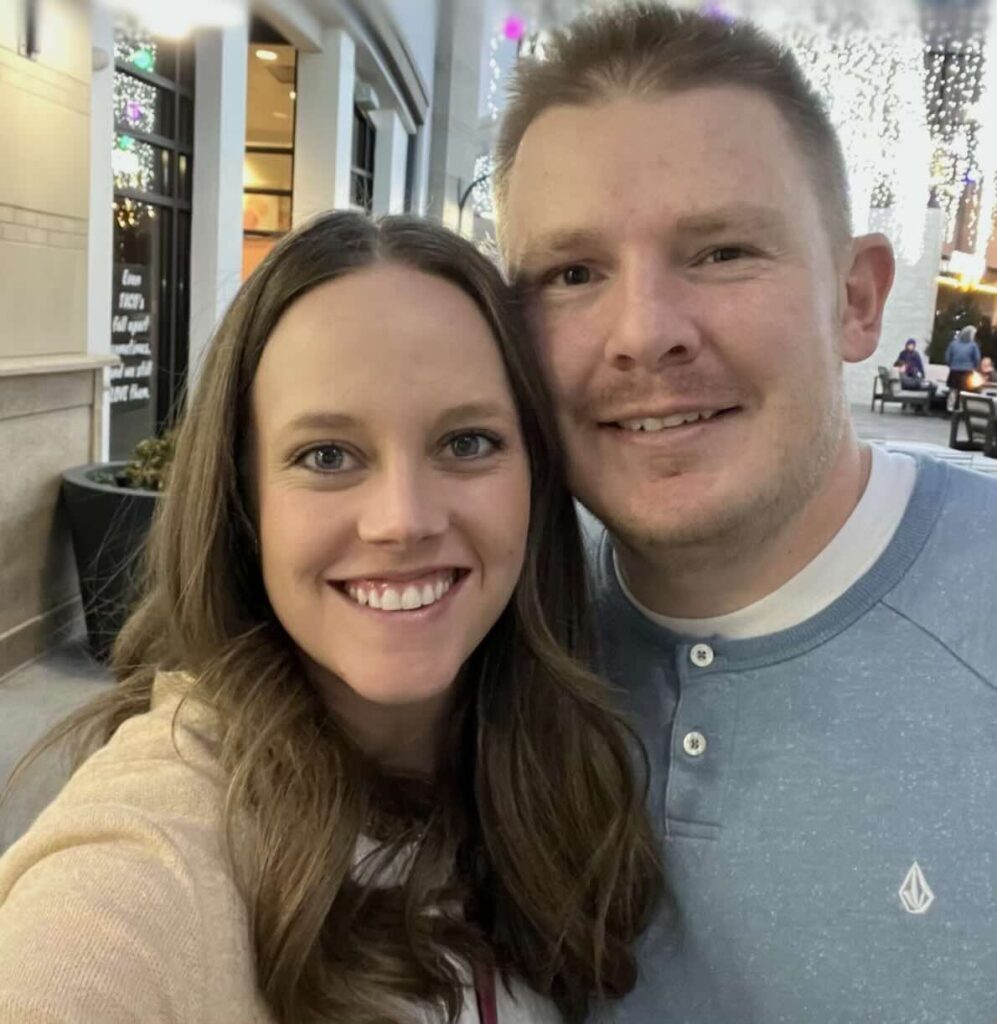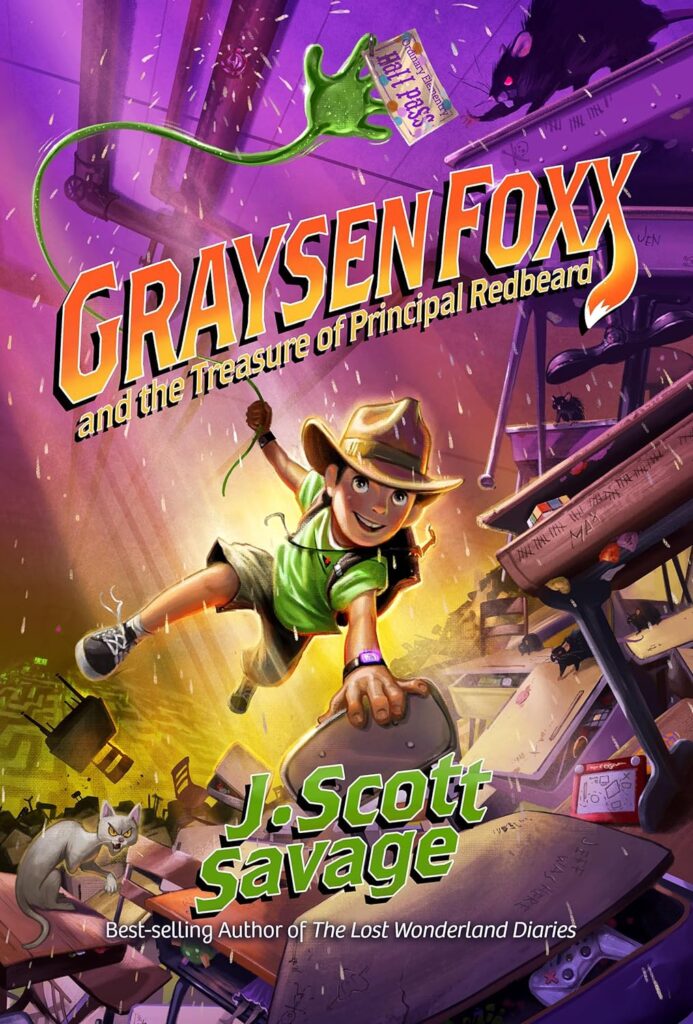Alexa and Eric Allred are the dynamic duo behind the hip and successful Gem Rose Design Company. As a stay-at-home mother, Alexa found herself with spare time during her children’s preschool hours. She decided to use this opportunity to learn how to make personalized T-shirts for her young family. Meanwhile, her husband, Eric, began refining his art and design skills—a passion he’d developed in college but temporarily stowed away to focus on fatherhood and a demanding career in marketing. With Alexa’s eye for detail and Eric’s artistic skills, they now run a well-oiled machine. However, their journey has not been without challenges. Through years of trial and error, they learned valuable lessons they now share with creators looking to start a T-shirt design business of their own.

Hone Your Digital Design Skills
Eric transitioned from traditional markers and paper to digital graphics using the Procreate app on an iPad, teaching himself to use the program through online tutorials and YouTubevideos. Procreate uses natural media simulation, like painting with a standard paintbrush, to create pixel-based art. This step-by-step approach helped him make a smooth transition to digital design.
For higher-resolution designs, Eric made the switch to vector-based graphics. Vector images can be blown up without losing quality, making them ideal for signage, logos, and T-shirt design. Vector-based art involves manipulating points and curves instead of freehand sketching. He began using a limited vector software called Vectornator (now Linearity), then moved to Adobe Illustrator. To help make the switch from traditional brushstrokes to vector shapes and lines, Eric challenged himself to copy standard designs and logos to create graphics that remain sharp on any scale.
Understand which files to use when saving your designs. PNG files are raster files made up of pixels. They maintain high resolution while supporting transparent backgrounds, but enlarging them can stretch and blur the image. JPEG files are also pixel-based. They are often used for images on websites and digital platforms but lack the transparency feature crucial for T-shirt printing. The image will usually print on a white square background. Lastly, SVG files are preferable for T-shirt designs, as their vector-based nature means they can be enlarged without the blocky appearance of pixelated images.
Choose a Method to Transfer Your Image
Vinyl: Alexa began by using a Silhouette electronic vinyl cutter to create simple designs. However, cutting and weeding (removing extra material from negative spaces) was time-consuming and impractical when fulfilling large orders.
Heat Press: heat press transfers use a thin, paint-like medium printed onto transfer paper. The flexible material melds onto the shirt upon application via heat and pressure. However, this method requires bulk orders with a minimum quantity of shirts featuring the same design to keep costs manageable.
Sublimation: sublimation printing offers an option that doesn’t require a minimum print run. The technique involves transferring ink onto a film that remains wet until pressed onto the shirt, resulting in a vibrant and durable design. This process is limited to 100% polyester fabric, and the T-shirt must be white or light-colored.
DTF: Direct-to-film printing allows for more fabric and color options. Ink is printed onto a film material coated with powder and baked, creating a protected layer pressed onto the shirt. Many different designs can be printed on a single gang sheet, a long roll of film priced based on the square inch. Alexa has found this method to be ideal.
Devise a Marketing Plan
Alexa first began selling T-shirts at craft fairs, where she prepared thirty designs, including seasonal/holiday themes and year-round options. She brought her heat press, along with a selection of blank shirts of various sizes. Attendees could browse the designs, choose their favorite, and select a shirt color from the available options. She would then press the design onto the shirt. While a good portion of the shirts remained unsold, selling at craft fairs helped her gain visibility in the community. Handing out business cards and engaging with attendees allowed her to spread the word about the business.
Additionally, personal connections played a significant role in their marketing efforts. Through word of mouth, particularly from friends, family, and acquaintances, they attracted a steady stream of custom orders. Many of these orders came from people they knew through various aspects of life, such as sports teams, dance studios, or educators. Eventually, their customer base expanded beyond personal connections.
They now advertise their designs on social media platforms like Instagram and Facebook. They use a “drop” marketing technique, offering specific designs for a limited time. For instance, during their “Easter drop,” they provided various Easter/spring-themed designs. To order, customers left a comment under the picture of their preferred shirt and design combination. Customers who purchase a T-shirt during a drop must place their order within the week. This method allows the company to place one big supply order and finish all the T-shirts by a specific date.
Provide Exceptional Customer Service
Eric and Alexa work closely with clients to customize designs. This process often involves adjusting colors, sizes, or other elements to match the customer’s vision. For instance, team events frequently require custom logos or artwork to represent their theme. They collaborate with the customer to gather details about their requirements, such as preferred colors, imagery, or quotes, and incorporate the elements into the design. Then they share the design with the customer for feedback, making revisions until they are satisfied. Customers can also choose a premade digital design from online sellers. They most often purchase from Etsy, but several other platforms offer artwork in PNG or SVG files.
Always communicate with the customer if there are delays or other issues with their order. Explain the situation without making excuses and present solutions to fix problems quickly. Your customers will appreciate your honesty and professionalism. Be approachable, flexible, and consistent in your services. Establishing trust with customers will encourage repeat orders and boost business prospects.
Look for Opportunities to Use Your Talents to Bless Others
Following the tragic loss of a young boy in their town, Eric and Alexa offered their services to design a few shirts for a fundraiser to raise money for the boy’s family. They initially expected to produce around 200 shirts but ended up creating over 800 and raising over $13,000. The experience reminded them that designing T-shirts is more than a hobby or business venture—it has the power to make a meaningful impact on the community.
Help others on their journeys. While it may seem counterintuitive to share hard-earned knowledge, they are happy to help when people seek advice and believe there’s room for everyone to be successful.
Eric and Alexa find joy in working together and bonding over their projects. They love knowing their designs have made a difference in people’s lives, take pride in seeing them in the wild, and aim to inspire others who want to cultivate their creative gifts.






